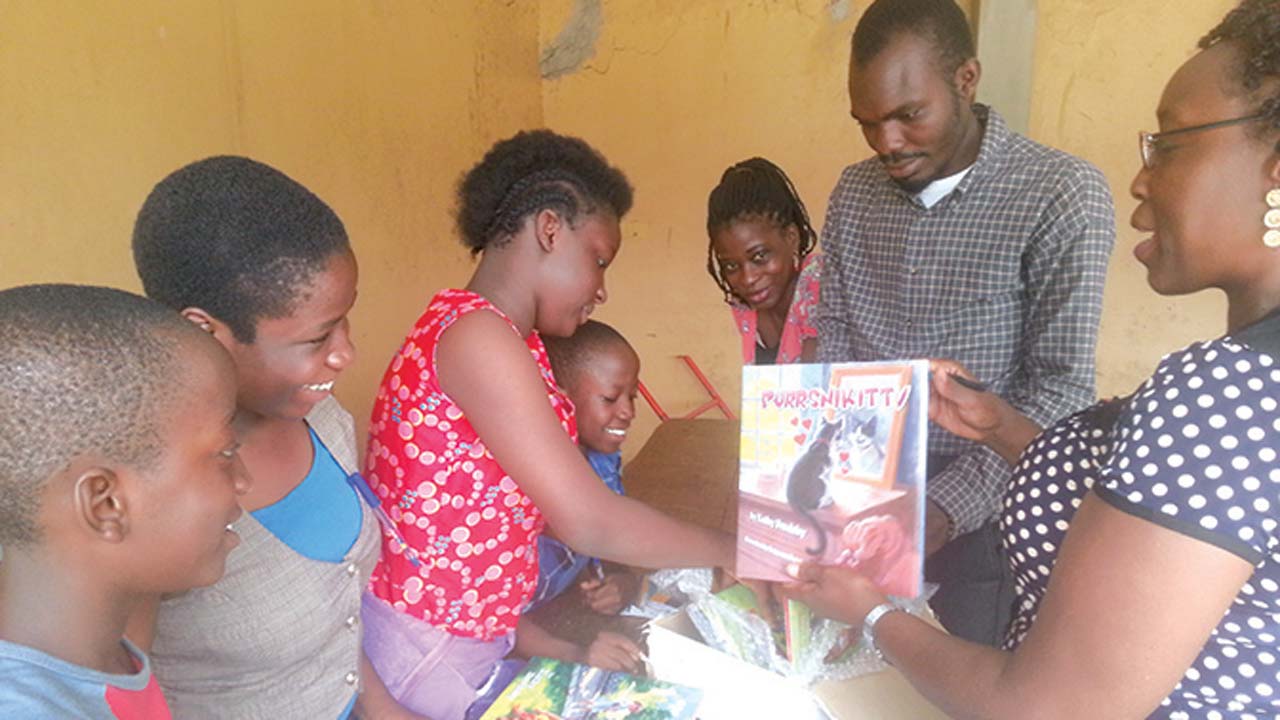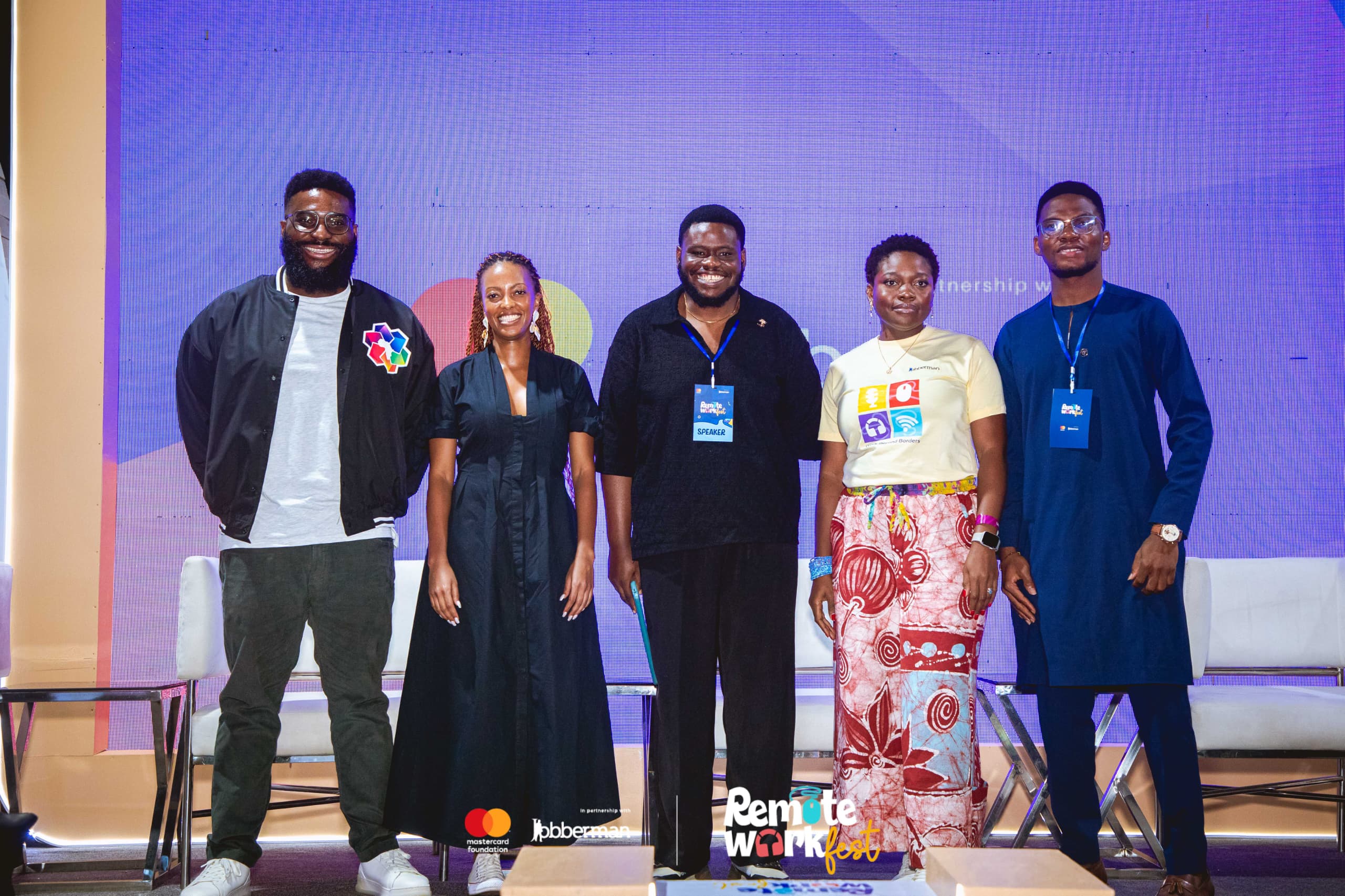
When Nigerian literary critic and coach, Oluwaseun Aina decided to attend the 2016 edition of the International Literacy Association Conference, a global reading network in Boston, United States of America, she had no inkling that her appreciation of children literature was about to evolve. However, the reason for this eureka feeling is not far-fetched.
Back home in Nigeria where she runs a Magical Book Club, she has had to contend with myriads of challenges noticeable in Children’s book; they were either not interesting, error-prone or having poorly illustrated pictures.
“I was going from booth to booth networking with publishers and authors when I came across Kathy Brodsky’s booth,” she said.Initially, Brodsky had donated her newest book, High Wire Act to Aina during the conference. However, she also decided to donate the rest of her books after an engaging and exhilarating Skype session with children at the Magical Book Club.
Brodsky avers that, “I felt this program was especially important because it’s bringing something about literacy to a population that is being ignored. Also, reading is the basis for every type of learning, and if a person can read, the sky is the limit in terms of their knowledge,” she said.
Aina, who bagged a Bachelor’s of Science degree in Mass Communications at Bowen University, strated Magical Books Club on December 14, 2009, during her Master’s Degree programme at the University of Ibadan.
“My Master’s thesis, which was aimed to improve children’s reading comprehension was titled Enhancing Pupils’ Reading Comprehension through Direct Instruction and Cooperative Learning. While on the field, I had some challenges in really testing the effectiveness of these techniques on some participants in the experimental group because they had difficulty reading,” she said.
The grand motif that birthed Magical Books Club, as Aina puts it, was to expose children to the art of reading and use the knowledge gained to empower to harness the knowledge gained for self empowerment and also for those around them. Little wonder the Book Club has positively impacted over 200 children till date.
The founder believes that when children fall in love with the art of reading, they would inadvertently become better readers and leaders.Aina, however, is worried that, despite the fact that these children were supposed to have attained the stage of reading, most of them still had difficulty learning to read.
“The notion of most people regarding children not loving to read might just be misconstrued. Children with reading difficulties most times abandon reading because they have no support system to make the reading process enjoyable.”’
Hence, Kathy Brodsky’s highly imaginative and picturesque books have become very useful for children at the Magical Book Club. A licensed clinical social worker, Brodsky writes and promotes quality books that are timely, visually exciting, entertaining, educational and fun and she believes that people understand other cultures through story telling.
“Nigeria has a rich history of storytelling that needs to be shared with the world. In particular, more children’s stories need to come out of the nations of Nigeria. There are thousands of verbal stories handed down generation to generation that need to be captured in writing as the continent of Africa is unique to the world in so many ways,” she said.
On account of Brodsky’s prolific books, there is a new lease of life in Magical Book Club as children’s literary interpretation has improved. Omolola Tiamiyu, a 14 years old member of the club shares her thoughts of Brodsky’s books.
“High Wire Act is about the importance of traffic lights. Without traffic lights, there would be delay and disruption in the movement of cars and everybody would miss benefit of traffic light. Also, The winner is… is about a dog, which tries to be like a cat to win a competition but the dog eventually learns not to copy anybody but to be himself. The same applies to us, sometimes we might want to be like someone else but we should be ourselves,” Tamiyu said.
To Nigerian authors, who specialise in children literature, Aina said, “they can learn the art of presenting their books in such a beautifully illustrated package; they should not also limit the capability of children. Hence, authors should include few big words to improve the vocabulary of children. Nigerian authors can learn to infuse questions that would spur reader’s deeper levels of conversation and literacy,” she said.






